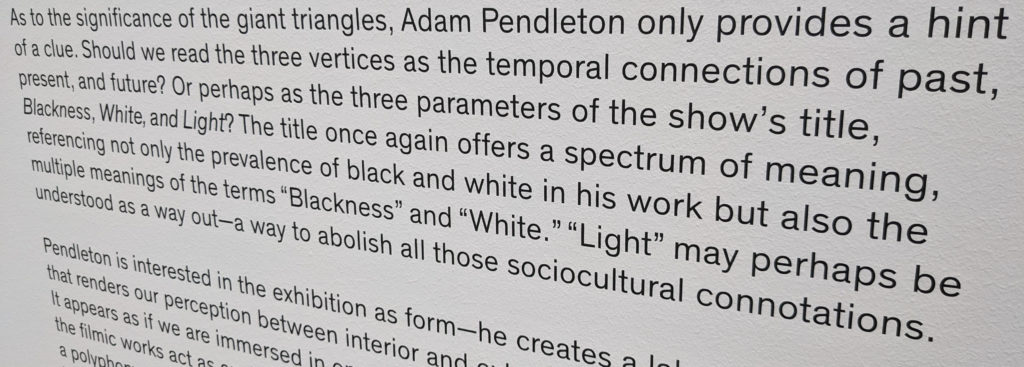This spring I sat on a career advice panel in Montreal at the Geometry of Subgroups conference, offering my thoughts from the perspective of someone who recently jumped from academia to industry. As fine as the panel was, I am frustrated at how far short I fell of what I felt should be said. So here is my attempt at better expressing myself. If you have more questions, feel free to pass them on to me, and maybe I’ll do another round. The more impertinent the questions, the better.
Q: If I quit mathematics, can I really consider myself to be a mathematician. Like, really?
There is a rich historical tradition of mathematicians leaving academia and going out into the world to do other things.
- Isaac Newton in his later years tired of his cushy Cambridge position and wanted an exciting job in the capital. He became Warden of the Royal Mint and oversaw the Great Recoinage of 1696 (there is a book about the whole story).
- John von Neumann had an impact on the post war world that I cannot adequately describe in a few sentences. But his work consulting with the US defense department led one recent AMS review of a recent biography to spend time addressing the question of whether or not he was evil.
- Jim Simons ran off and started one of the world’s most successful hedge funds. He was successful in large part by employing quants — phds from scientific rather than financial backgrounds. He made so much money doing this he created the Simons Foundation. If you’ve ever read a Quanta magazine article, he paid for that (it certainly isn’t a revenue generating enterprise).
- Robert Zimmer ascended to administrative heights, becoming Chicago University president. He was so celebrated that after his passing the NYT columnist Bret Stephens gave an invited Class Day speech complaining about cancel culture in tribute.
- Alexander Grothendieck founded a commune, and later became a reclusive shepherd.
- John Meynard Keynes got drawn into economics, trying to prevent World War 2, and founding the welfare state. (The real takeaway of all this is that you should go and read The Price of Peace by Zachary D. Carter).
- Richard Garfield did his PhD in combinatorics, but found his dreams really came true when a dinky card game he designed became the international sensation known as Magic: The Gathering. It is only a matter of time before MTG cards become accepted as international reserve currency.
Being an mathematician at an academic institution is a very narrow avenue of human experience, and plenty of successful mathematicians have had healthy appreciation of this.
Q : Why did you quit mathematics?
Principally to resolve a two body problem; I was separated from my partner by the UK travel ban to the US during the pandemic. I saw my chances of getting a suitable job as being so negligible that as soon as my visa was approved, I quit my job, the UK, and flew over the Atlantic to get married and pursue the American Dream. I had another year to my postdoc, but considered waiting another year to be abject foolishness. Being separated from my partner by the pandemic did dramatic things to my tolerance of that situation. I certainly wasn’t willing to protract it any further on the vague possibility that something might turn up for me on the job market. At least part of this intensity of feeling was Pandemic induced, but it was pretty consistent with my general thinking. I’m a lot more mellow about the way it all worked out now I’m on the other side of it.
Q : Why couldn’t you get a job?
There a number of reasons. My job search became progressively more restricted as efforts to resolve my two body problem restricted me geographically. I was applying into the US, a highly competitive market, with a real lack of suitable teaching experience. I also didn’t have any fancy grants, and although I had a very fancy Oxford postdoc, I don’t believe it would have moved the needle in the same way as having a NSF grant. (A grant which is very important in the US, and I have never been eligible to even apply for). My visibility in the US was pretty low due to giving almost no talks while doing my PhD in Canada, and then being out in Israel and the UK. I certainly invited myself to seminars when I was stateside, but I was never invited to give conference talks or present at AMS meetings, which would have done a lot more. I was interviewed, once for a postdoc position when I finished my PhD and that is the most interest the US job market has ever shown. My strongest research and fanciest papers were produced towards the end of my time in math — during the pandemic, in fact. My fortunes would have been significantly different if I had finished my PhD with such results. My best chance of getting a job was probably when my partner got a bunch of job offers, but none of them were willing/able to consider a spousal hire. That kind of thing seems to work out for other people.
Q: Do you think it represents an institutional failure that someone as talented as yourself cannot get a job?
I obviously like to hear that people appreciated the work that I did, and I am very proud of it. But it is worth considering what this question might mean. The math job market is zero sum in every meaningful sense.
If you want there to be more nice research jobs to be available, sure, that would be nice, but that is a very general complaint, and applies as much to everyone else as to me. (Pure mathematicians are the only people who feel this way. Most people want more doctors, nurses, and teachers). If you think I am better qualified than some of the people getting the jobs, then maybe or maybe not, but that is very hard to speak to. Generally, it is worth being humble about how limited your judgment is about all the mathematics being done, and how strong the other candidates out there are.
Q: Why do other people quit mathematics?
They can’t get the job they want. They don’t believe they can get the job they want. They get bored with mathematics (or at least they way it ultimately gets practiced). They get a job and realize they don’t like some aspect of it, and it’s very difficult to get another job. They become interested in doing something else. They become interested in the idea of making lots of money. They need to make more money. They become sickened by the scientific community’s connections to the military industrial complex.
Q: Why do so many mathematicians leave academia and then go into tech and finance?
The short answer is because that is where the money and opportunity is, but there is a far better, longer answer that makes such a decision look far more sympathetic. Getting an academic, tenure track job is an example of what I will call a prestige vocation. There are other examples, mostly creative pursuits, but the easiest identifier is whether you can imagine a MasterClass (TM) Video Series being taught by someone doing this job. These jobs tend to have limited opportunities, fought over by highly qualified, highly educated, frequently highly privileged individuals, who have to stick it out in subordinate positions for many years. At the same time the industry itself either isn’t particularly lucrative, or even profit driven at all, from a market perspective. In some of the worst examples, aspirants are often required to pay increasing amounts for the degrees and accreditation just to access the bottom rungs.
Often this was different, many generations ago, but not anymore. Frequently people in these fields are overworked and underappreciated, becoming a miserable and dispirited. So when a mathematician jumps ship they would be wise to avoid making the same mistake again, and if you are a mathematician then there are these two industries that are ready and happy to put you to work.
As prestige vocations go, mathematics is probably one of the best. You are paid to go to graduate school, and there are a lots of perks like getting to travel. Best of all, you get to do mathematics.
You actually get to do the thing. You aren’t an assistant or an extra on a film set waiting for your moment.
You aren’t an editorial assistant with no time to work on your own novel. You get to do your thing.
Frequently, people do get the kind of job they are after — and maybe you will too! And, when the opportunities run out, you have a kind of training and qualification that you can convert into a new career.
It is also worth saying something about the tech industry. Computers are fascinating engines of mathematics worthy of a little respect. I often think about Frank Nelson Cole. In 1903 he gave an AMS presentation entirely devoted to multiplying 193,707,721 and 761,838,257,287 to demonstrate he had factorized the Mersenne number 147,573,952,589,676,412,927. According to his own report, discovering the factors had taken three years of Sundays. Today, I can spend 5 minutes writing a program in python that will discover the prime factors in a couple of seconds.
Q: Do you spend all your time wishing you had a nice tenure track job at a research university?
Not really. Getting a tenure track job, even a nice one, would have been a considerable change of pace. Assuming that the set-up resolved my personal situation as conveniently as my current job, a lot would have changed: more teaching, more meetings, and more responsibilities. Do the right postdocs and you can avoid all that until you hit the tenure track, but risk possibly ruling yourself out from the running for many such jobs.
I feel like I had a lot to bring to the table as a teacher, that I never really had the opportunity to offer. It would have been a lot of fun to have clever graduate students to farm out all the problems I couldn’t solve. I think I would have been a good graduate student supervisor.
In terms of the research, I now have a solid appreciation the amount of work that is involved to make substantial contributions happen. I don’t rue what I wasn’t able to do. In my more reflective moments, I rue the fact I can’t go back and become a graduate student again with all that I now know. If I were really dead set on returning to academia, my best bet would be to change my name, choose a distant, unrelated, but similarly exciting field, lie about my age, and start all over. I’d fucking kill the second time around. Leave everyone else for dead. Be feted within that clique, crank out some collaborations with the top peeps, and then when I collect my Fields medal all the geometric group theorists would jump out their seats and exclaim “That’s Daniel. He’s an old man! Take that prize away from him, the fraud!”
Q: Should I become a data scientist?
I can’t tell you what you should do. You have to look into your heart. Data scientist is a popular option and you can probably discuss that career with people who have actually gone away and done it. There are many such careers you might think about. Software engineering, AI, actuarial science, consulting, options trader, teacher, project manager, life coach, technical writer, substacker, astronaut. I can’t tell you how realistic or suitable any of them are for you. I can’t tell you what positions to apply for. I can’t tell you what company to try and work for. Academia offered a very limited range of opportunities and people generally would apply for almost anything and take what they could get. When you make the jump you have to think more carefully and act more deliberately.
Where would you like to work?
Would you like to work remotely?
Do you want to work for a nonprofit?
Do you want to work for a large or small company?
A startup?
Do you want to travel?
Would you like to work with customers?
Would you like to go into management?
Do you want to work for a public or privately traded company?
What sectors do you want to work in?
The financial sector?
Advertising?
The arms industry?
You should have opinions on these and other questions and let them guide you.
I know someone who quit academia and went off cycling around South America until Covid put an end to that. You have to respect the ability to make such decisions.
Q: Can I get a job in the tech sector without programming experience?
Yes, but you should spend time learning to program. Enough that at least you can do the interview style problems you can find on leet code. It is then important to find a job opening where they are sympathetic to your case and will appreciate what you can offer. There are many companies that understand that the ability to program can be learned on the job, but many of the qualities you have — mathematical facility, for one — are not so easy to find. There are many jobs you will not be qualified for (at least not at first), so you should keep an open mind about what you can do.
Q: What advice would you give for getting a job?
- I don’t know how long the transition will take, but I psychologically prepared for six months. The good news is you can start investigating and preparing in small ways and big ways, even before actually quitting.
- Get in contact with people you know or knew who left for industry. They will generally be very willing to talk and help you out. There is a kind of camaraderie among former math/phds. And at many big companies there is a financial reward when someone you refer gets hired.
- Get in contact with people you don’t know in industry. There are all kinds of ways to do this. I haven’t investigated them all. But learn to write short, polite emails that get to the point and aren’t weird.
- Learn Python. This is worth doing even if you are remaining in academia. Even if you aren’t going into the tech sector. It’s widely used, allows you to script quickly, and there are lots of resources for learning. Having some appreciation of what can be done in code is a very useful skill to have. What constitutes “learning Python” is obviously unclear. But best of all, if you hate it, you have learned that much. All that said, like mathematics, if you don’t have the right kind of motivation, it might be worth not bothering at all.
- Write your CV. Get other people to read it.
- Don’t be discouraged when your applications are ignored. Probably you didn’t apply for the right position. Half the battle is finding the right position to apply for. You probably don’t even understand what the right position to apply for is. That is why being able to talk to someone like a recruiter is so useful. They might actually know where they can place you. (I had the fortune to talk to an internal recruiter. I hear that external recruiters can be playing a numbers game, and may be less useful.)
- Take/audit courses that might be relevant. If you are still in an academic institution, taking a course on the side during a semester is a great way to hedge against the possibility of leaving at a later date. MIT has a bunch of good lectures online.
- Trust your mathematical instincts.
- Communication skills are valuable, to the point that this is something of a cliche. When I did my technical interview I went into TA mode, explaining what I was doing, and being self-deprecating about saying what I was confused about. If I had to interview again, I’d be 300% better. At least. But I was good enough.
- Be interested in what companies do, what people’s jobs involve. Sometimes you just have to ask to learn something useful.
Q: Weren’t you afraid that once you abandoned academia all your accumulated mathematical powers would dissipate, leaving you an empty vessel?
I feel like I spent enough time into the game that the thinking has been inscribed into me in some permanent way. I’ve also concluded that mathematical knowledge and understanding is not some precarious tower built up over successive years that will collapse without careful maintenance.
I believed that when I was an undergraduate, and the cumulative effect of undergraduate education certainly gave that impression. While I think good undergraduate courses should have that satisfying effect, I also suspect it can be harmful when transitioning into research.
Q: Weren’t you afraid of losing all those friends you made in mathematics?
Friends have confessed to me that this has been a non-trivial consideration. What is definitely true is that after a while as a mathematician you know a lot of people attending conferences, and you do enjoy having these regular reunions with them. The important point is that you don’t have to organize the get together (unless you are actually the conference organizer). This is nice, but really you should proactively maintain relationships with friends. Email, whatsapp, or meet up. Postcards are cool.
Q: I feel like my sense of self worth is tied to the mathematics I do, and the mathematical success I aspire to have. Is this a good reason to stay in mathematics?
You should not tie your self worth to success in mathematics. Pick anything else:
Being a good cook.
Having a sick set of shiny OG Pokemon cards.
Reading the poems published in the New Yorker.
Having a super discerning taste in music.
Always doing the washing up immediately after you’ve finished cooking.
Having a article appear on an online humour site.
Raising your FIDE chess ranking.
Raising your chess.com ranking.
Maintaining your wordle averages.
Finishing Gravity’s Rainbow.
Having very tidy cursive handwriting.
Just not being successful in mathematics.
Q: It sounds like by leaving academia and going into industry you have become a little too comfortable with late capitalism.
If you are afraid that I am not a good communist, then you are probably right. But there is a serious point, that isn’t especially political, and might be helpful. You should distinguish between having principals about what kind of work you want to do and being generally squeamish about capitalism. The danger is that when you do start to feel the desperation of finding some kind of job, you will embrace a kind of nihilism and decide that since you can’t achieve the purity of tenured academia, then you might as well make money by whichever means is most lucrative, working for whoever is ready to pay you.
[A quick note: this article lives here, on my blog. If you liked it, please do share it. Otherwise, I can assure you, very few people will find and read it.]












